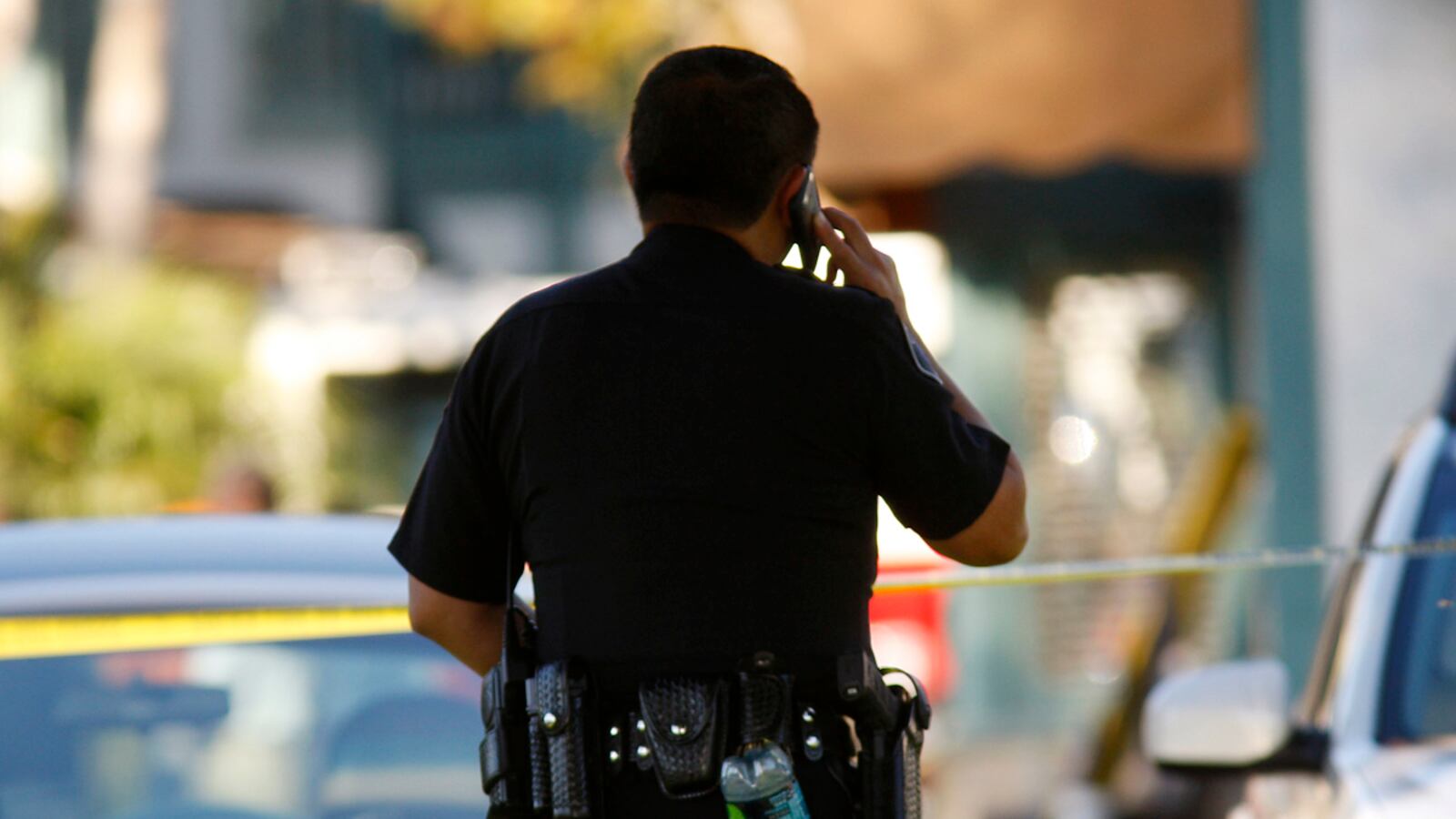The laws allowing individuals who feel threatened to respond with deadly force have become a national scandal following the shooting death of unarmed Florida teenager Trayvon Martin. One remarkable irony: while police departments now encourage off-duty police officers to avoid carrying firearms or confrontations, the so-called stand-your-ground laws effectively encourage civilians to do so.
When Florida lawmakers first proposed such legislation, law-enforcement leaders—the people most knowledgeable about the hazards and limits of armed intervention—were adamantly opposed.
Where most police departments once encouraged or even required off-duty officers to remain armed and to jump into the fray wherever and whenever they thought it appropriate, most today prefer officers to spend their off-duty time unarmed. Instead of standing their ground, which police officers everywhere have the legal power to do, off-duty officers are told whenever possible to “call it in” to 911.
Rather than de-escalating situations, armed officers not at work can easily misread or exacerbate them, lethally transforming ones that otherwise would have ended nonviolently. When an armed person chooses direct involvement in an ambiguous situation, the potential for death or serious physical injury, if not present before, is manifest.
While the risks of armed intervention are great, the urgency of action is often illusory in an era where videos and other technologies make it easier than ever to track down and arrest an escaped subject. On those increasingly rare occasions when New York cops do fire their weapons, they hit the target just one time out of five. When bullets fly, unwitting innocents can and do find themselves in the kill zone.

What’s more, off-duty cops also do not have the tactically advantageous radios, bullet-resistant vests, and obvious identifiers used by their on-duty brethren. Any armed person in plainclothes runs the risk of being killed by well-meaning officers or citizens. On Long Island last year, a federal agent who pulled out his weapon to stop a store robbery was killed by responding police. Nor do officers not at work tend to carry less than lethal weapons or handcuffs to control and detain lawbreakers.
Those police departments that have not acted forcefully to discourage armed interventions by off-the-clock officers have paid a price. The Baltimore Police Department, which has an antiquated policy requiring its 3,100 officers to carry guns at all times, was rocked last year by three highly questionable shootings by officers in bars. In contrast, both the NYPD and LAPD nudge officers whenever possible to not act unless responding to an imminent threat to life and limb. The policy works: off-duty shootings have been extremely rare among the departments’ combined 45,000 officers.
Enlightened police agencies tell officers to avoid altercations rooted in vanity such as road rage, fights over parking spaces, or scrapes with neighbors. Wizened cops know that the sagest course of action while armed is to avoid, de-escalate, or walk away quickly from potentially explosive contretemps.
Today’s police officers are almost universally screened for psychological disqualifiers such as “poor impulse control,” immersed in the law and tactics, and are subject to internal quasi-military discipline including forfeiture of pensions that can be worth millions. New York’s police patrol guide, echoing the deadly-force-as-last-resort ethos of most U.S. departments, says: “The primary duty of all members is to preserve human life,” and that guns should be used “only as a last resort.”
The courts have also helped to elevate the way officers view the value of human life. For most of the last century, American police were legally permitted in many places to use deadly force against suspects fleeing a crime scene. That cavalier attitude changed in 1985, when the Supreme Court ruled in Tennessee v. Garner that using deadly force to prevent escape when there was no threat of death or serious injury to the officer or others violated the Fourth Amendment’s protection again unreasonable seizure.
With police officers being warned away from involvement in all but the most unavoidable life-and-death confrontations, the last thing the nation needs is their replacement by unaccountable, self-deputized citizen surrogates. This is all the more true when one considers that it has frequently been minorities who have been targeted by such volunteer “watchmen.”
In the Martin case, the evidence so far suggests that Zimmerman had convinced himself that the teenager was one of the dangerous “assholes who always get away,” as he put it to the 911 dispatcher (who encouraged him to remain in his vehicle and let the police investigate). If an armed person is of a mind that danger lurks everywhere, it is easy to see how that person can precipitate events that make it so, even for police officers trained on the dangers of confirmation bias. In Pasadena, Calif., last week, officers responding to a call shot and killed a man falsely accused of being armed by the 911 caller. The expectation that a gun was involved appeared to predispose the cops toward deadly force.
The “nation under siege” rhetoric favored by advocates of widespread weapon carrying resonates with the worst possible self-appointed “community defenders”: the mentally unstable and those deeply rattled by America’s cultural and demographic changes.
As a nation we have been served well by traditional self-defense laws that encourage individuals who feel threatened to disengage and call the police. While stand-your-ground advocates importune fearful citizens to reach for their weapons and up the ante, off-duty peace officers live up to their oaths every day by eschewing confrontation and making preservation of human life their top priority.






